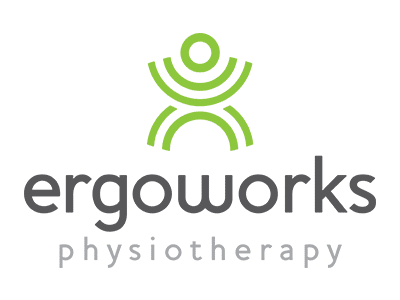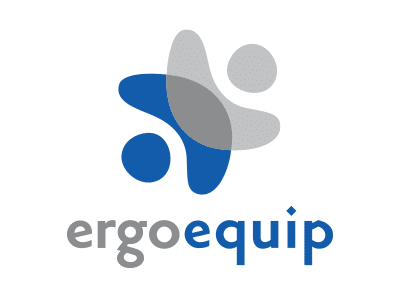How Ergonomic Assessments Enhance Mental Health and Well-being at Work

In today’s fast-paced work environment, mental health and well-being are paramount. As organisations strive to create supportive workplaces, ergonomic assessments have emerged as a crucial factor in promoting both physical and mental well-being. While ergonomics is often associated with physical comfort, its impact on mental health is profound.
Read on further to learn how ergonomic assessments contribute to mental health and well-being at work, offering valuable insights, actionable tips, and key strategies to optimise your workspace.
Understanding Ergonomics and Mental Health
Ergonomics is the science of designing work environments that fit the needs of employees, enhance efficiency, and reduce discomfort. While most discussions on ergonomics focus on physical aspects like posture and workstation setup, the mental health benefits are equally significant. Poor ergonomics can lead to physical strain, which often translates into mental stress, anxiety, and decreased productivity. Conversely, a well-designed ergonomic workspace fosters a sense of comfort, reducing stress levels and improving overall mental health.
How Do Ergonomic Assessments Improve Mental Health?
Reduction of Physical Discomfort and Associated Stress
Physical discomfort at work, such as back pain or eye strain, often leads to increased stress and anxiety. Ergonomic assessments identify and correct issues that cause physical strain, thus alleviating the mental stress that accompanies discomfort. By creating a workspace tailored to the individual’s needs, employees experience less physical strain, leading to improved mental well-being.
Enhanced Productivity and Job Satisfaction
An ergonomic workplace not only reduces discomfort but also enhances productivity. When employees can perform their tasks without physical strain, they are more efficient and focused. This increased productivity leads to higher job satisfaction, which is closely linked to improved mental health. Employees who feel accomplished and satisfied with their work are less likely to experience burnout and stress.
Improved Focus and Cognitive Function
A cluttered, uncomfortable workspace can distract employees, affecting their focus and cognitive function. Ergonomic assessments help streamline the workspace, reducing distractions and promoting better focus. A well-organised and comfortable environment enhances cognitive function, leading to improved mental clarity and a reduction in work-related stress.
Promoting a Positive Work Culture
Investing in ergonomic assessments demonstrates an organisation’s commitment to employee well-being. This fosters a positive work culture where employees feel valued and supported. A supportive work environment is crucial for mental health because it reduces stress and promotes a sense of belonging and security.
Prevention of Long-Term Mental Health Issues
Prolonged exposure to poor ergonomics can lead to chronic pain and discomfort, which often results in long-term mental health issues such as depression and anxiety. Regular ergonomic assessments prevent these issues by ensuring that workstations are optimally designed to support both physical and mental health.
Key Strategies for Implementing Ergonomics in the Workplace
Tailored Ergonomic Solutions
Every employee is different, and so are their ergonomic needs. Implementing one-size-fits-all solutions may not be effective. Instead, organisations should focus on tailored ergonomic assessments that consider individual employee needs, job roles, and physical characteristics. Custom solutions ensure maximum comfort and productivity, which in turn enhances mental well-being.
Continuous Education and Training
Ergonomics is not a one-time fix; it requires ongoing education and training. Employees should be educated on the importance of ergonomics and trained to recognise signs of poor ergonomics. Regular workshops and training sessions can empower employees to make adjustments to their workstations, promoting long-term mental health benefits.
Integration with Mental Health Programs
To maximise the benefits of ergonomic assessments, they should be integrated with existing mental health programs. This holistic approach ensures that both physical and mental well-being are addressed, creating a more supportive and healthy work environment.
Use of Ergonomic Tools and Technology
Investing in ergonomic tools such as adjustable chairs, sit-stand desks, and monitor risers can significantly enhance employee comfort and mental health. Additionally, ergonomic software that prompts employees to take breaks and adjust their posture can further support well-being.
Regular Feedback and Adjustment
Work environments and employee needs change over time. Regular feedback from employees and periodic reassessments of workstations are essential to ensuring that ergonomic solutions remain effective. This continuous improvement process helps maintain both physical comfort and mental well-being.
Explore Advanced Ergonomic Solutions at ErgoWorks Consulting
Ergonomic assessments are not just about physical comfort; they play a crucial role in promoting mental health and well-being at work. By reducing physical discomfort, enhancing productivity, improving focus, and fostering a positive work culture, ergonomic assessments contribute significantly to a healthier and more supportive workplace. Organisations that prioritise ergonomics are not only investing in their employees’ physical health but also in their mental well-being, leading to a more engaged, satisfied, and productive workforce. At ErgoWorks Consulting, we specialise in creating ergonomic solutions tailored to your organisation’s unique needs, ensuring the well-being of your team is always at the forefront.


